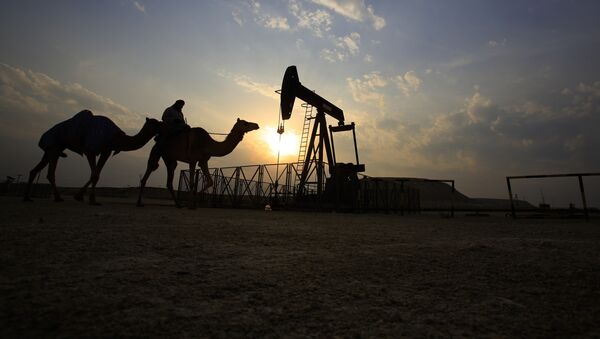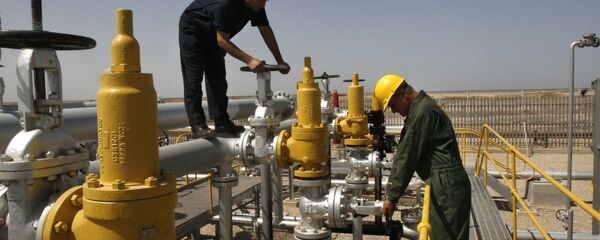Iranian Oil Minister Bijan Zangeneh has sent a letter to the OPEC (Organization of Petroleum Exporting Countries) president in which he asked him to prevent an increase in oil output by some OPEC members without reaching a consensus, according to Iran's Shana news agency.
"I hereby request Your Excellency to remind OPEC Member Countries to adhere to their commitments under the OPEC's decisions, adopted in the 171st and 174th Meetings of the Conference, and refrain from any unilateral measures undermining the unity and independence of the OPEC," the letter read.
Zangeneh stressed that any increase in the production by any OPEC member country "beyond commitments stipulated in OPEC's decisions adopted in 171st and 174th Meetings … would constitute a breach of the agreement."
He also urged OPEC members "not to let others take politicized measures targeting OPEC's unity and independence."
Zangeneh's remarks came after Iran's OPEC governor Hossein Kazempour Ardebili said that US President Donald Trump's request for Saudi Arabia to significantly step up its oil output to offset the rising oil prices can be seen as a call for Riyadh to withdraw from the OPEC.
READ MORE: UAE Energy Minister: OPEC to 'Rebalance Oil Market' After US Exit From Iran Deal
Earlier, Trump wrote on his Twitter page that he had spoken to the Saudi King about the need to increase Riyadh's daily oil production to two million barrels due to the unstable situation in Iran and Venezuela, and that Salman bin Abdulaziz Al Saud agreed with the proposal.
Saudi Arabia's SPA news agency also reported about the conversation between Trump and Salman, but has not mentioned the agreement announced by the US President. The agency said that the two leaders reaffirmed their commitment to maintaining the stability of the oil market and the global economic growth.
The Wall Street Journal in turn cited a high-ranking Saudi official as saying that the kingdom made no concrete promises to Trump but assured him of its ability to satisfy the market's demands.
READ MORE: US Admits Oil Prices May Go Up When Iran Sanctions Kick In
Meanwhile, asked on Fox News' "Sunday Morning Futures with Maria Bartiromo" if someone was manipulating oil markets, Trump said, "OPEC is and they better stop it because we're protecting those countries, many of those countries. OPEC is manipulating," according to Reuters.
In separate development, Zangeneh pledged that the US sanctions after Washington's withdrawal from the Iran nuclear deal in May 2018 will not affect oil exports from the Islamic Republic.
In late 2016, OPEC members along with 11 non-OPEC countries initially clinched a deal to reduce oil output by 1.8 million barrels per day compared to October 2016. The deal, which was aimed at boosting oil prices, was prolonged twice, with the last extension set to last until the end of 2018.


